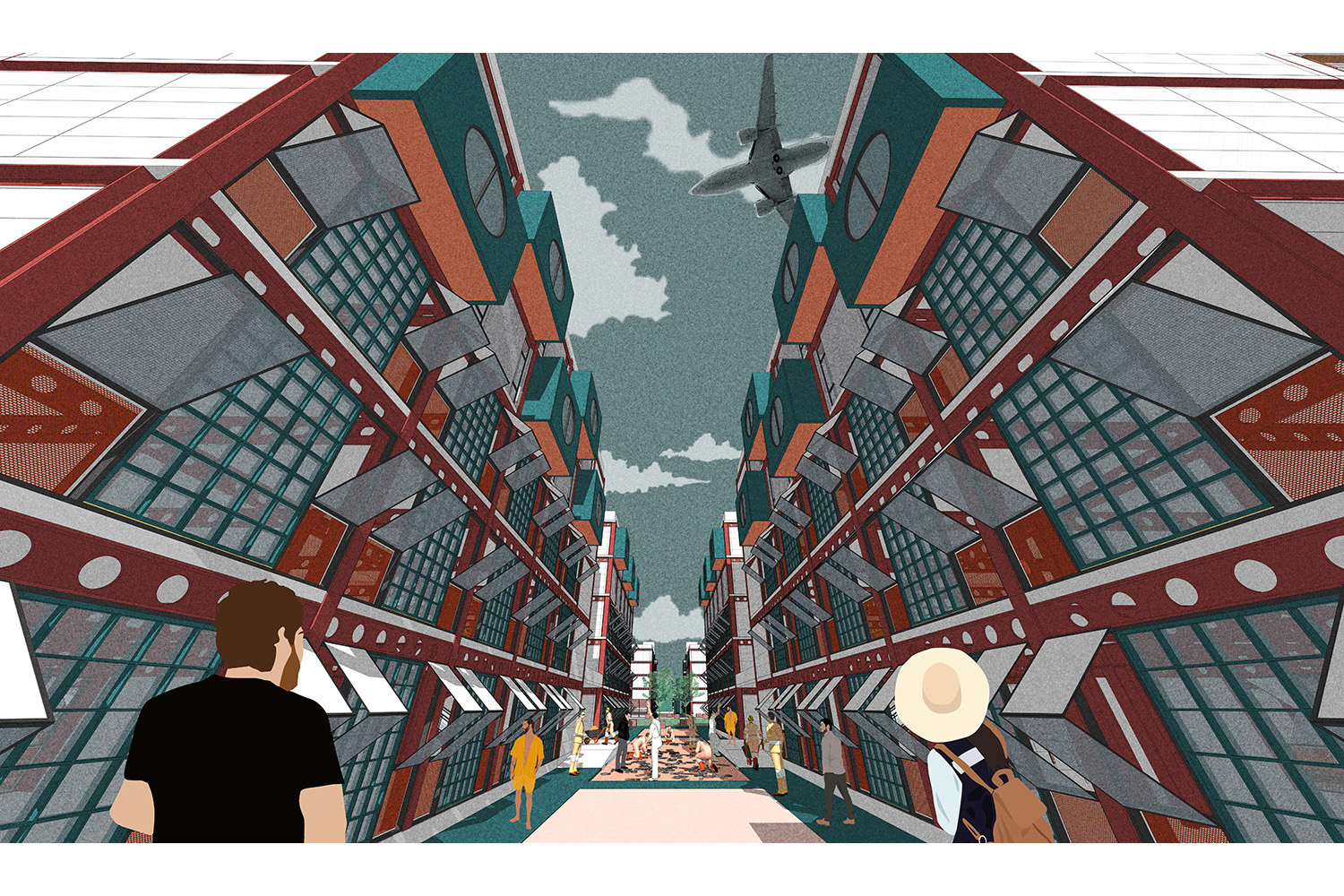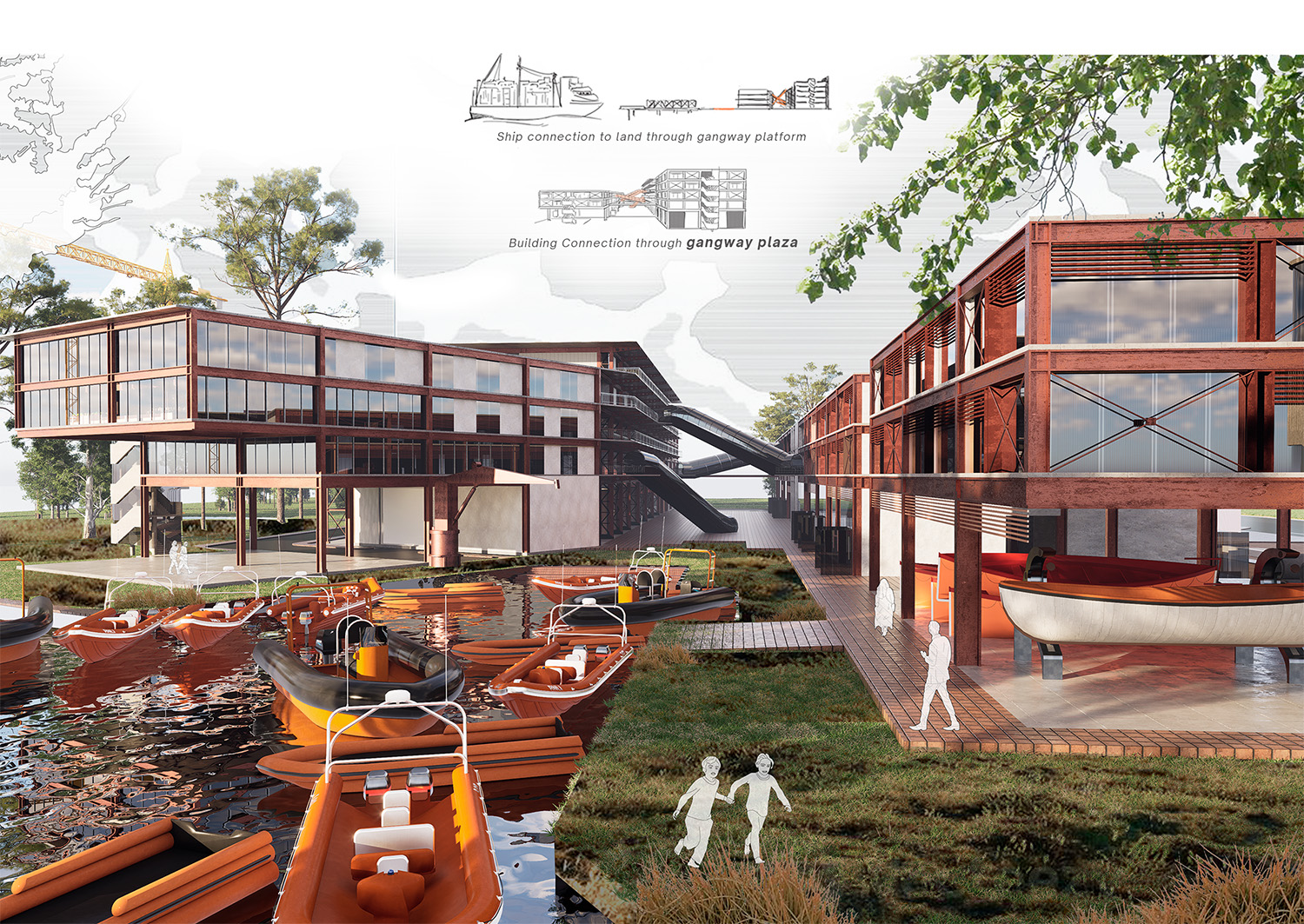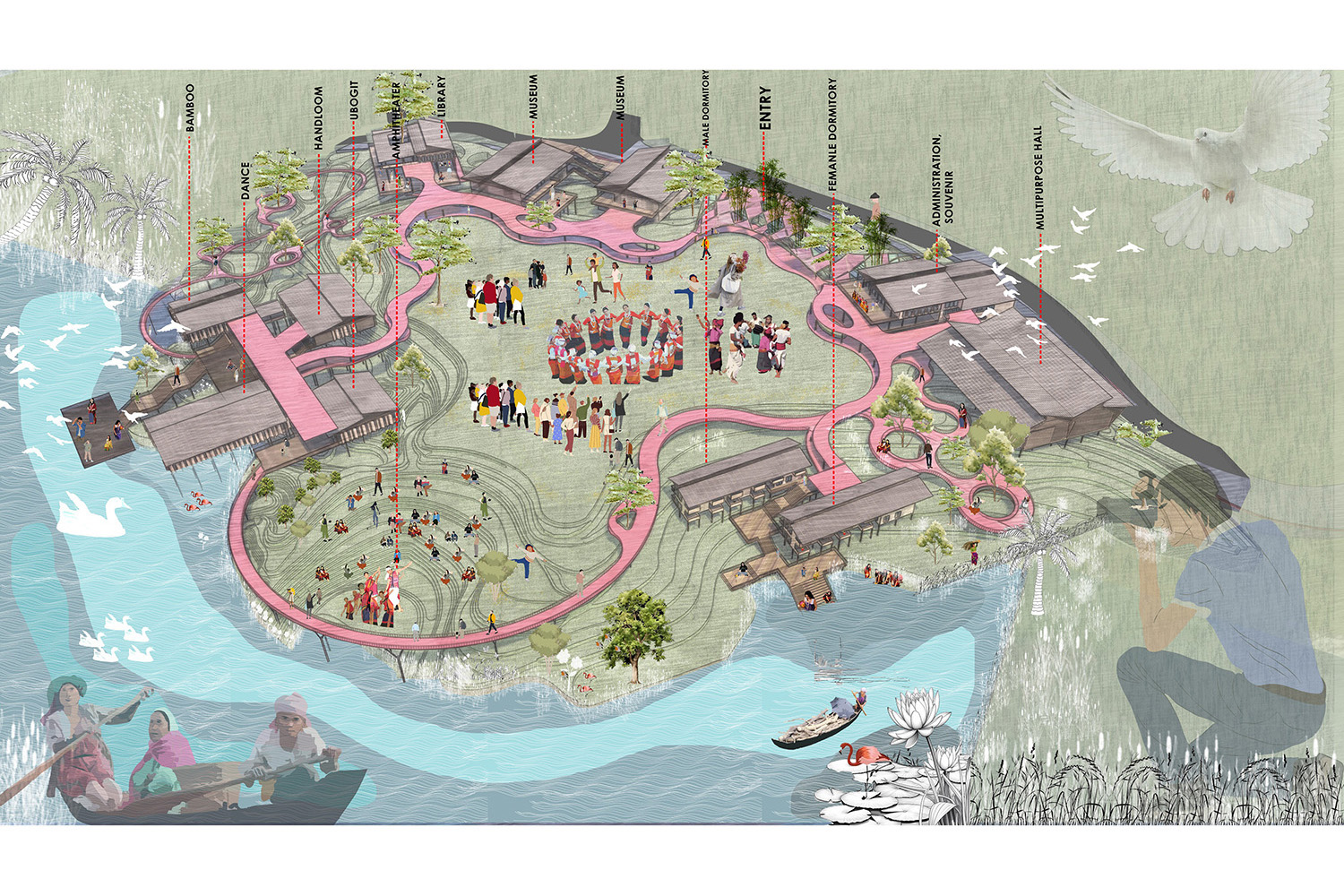Rethinking Zinzira: A New Urban Narrative for Micro Metal Industries

Situated along the southern edge of Dhaka, Zinzira represents one of Bangladesh’s most concentrated clusters of light engineering workshops, playing a vital yet under-recognized role in the national economy. Despite its economic significance, the area is characterized by spatial fragmentation, inadequate infrastructure, congested circulation, poor environmental conditions, and a lack of coherent urban integration.


This project, “Rethinking Micro Metal Industries, Zinzira,” is positioned within the discourse of industrial urbanism, which frames industry not as an isolated enclave but as an active and integrated component of the urban continuum. It seeks to reconceptualize this industrial landscape of Zinzira by proposing a framework that unites production, commerce, and community within a cohesive urban order. Central to this proposal is the introduction of modular, flexible, and adaptive workshop typologies. These units are designed to enable spatial reconfiguration in response to evolving technological and market demands. Complementing these production spaces are integrated commercial interfaces and marketplaces, envisioned not merely as transactional areas but as vital loci of exchange, visibility, and identity formation for the local industry.

Furthermore, the riverfront is rearticulated as a hybrid ecological and infrastructural edge. This strategy aims to simultaneously accommodate essential industrial logistics and vibrant public life, while also reinforcing resilience against ongoing environmental degradation. Through this integration, the project aspires to establish a reciprocal and sustainable relationship between industry and its broader socio-ecological context. Ultimately, the thesis positions Zinzira as a prototype for reimagining micro-industrial clusters in rapidly urbanizing territories. By synthesizing principles of modularity, inclusivity, and ecological responsiveness, it articulates a new paradigm of industrial urbanism that seeks to reconcile economic vitality with social and environmental sustainability.




Section: Module-1 © Tomal Banik

This project merits recognition because it addresses an often-overlooked yet economically indispensable sector of Bangladesh—the micro metal workshops of Zinzira—through a design framework that is both socially inclusive and future-oriented. Rather than treating industry as a peripheral or polluting element, the project reframes it through the lens of industrial urbanism, where production, commerce, and community coexist within a sustainable urban ecosystem.


Its primary strength lies in proposing a scalable and replicable model. The modular and adaptable workshop typologies are designed to respond to evolving industrial demands while simultaneously improving worker safety, ergonomics, and productivity. The integration of a dedicated marketplace bridges the gap between informal production and formal commerce, empowering local craftsmen with greater visibility and economic resilience. Concurrently, the regeneration of the riverfront transforms an environmentally degraded edge into a multifunctional urban corridor that balances essential ecological restoration with industrial logistics and community life.





Beyond its design innovation, the project is deeply rooted in socio-economic justice. It aims to dignify the lives of workers, elevate their craft, and preserve cultural heritage, all while aligning with global discourses on sustainability, resilience, and inclusive growth. In doing so, it transcends conventional architectural responses and positions itself as a prototype for rethinking informal industrial settlements in developing contexts. By reimagining Zinzira not merely as an industrial cluster but as a dynamic urban organism, this project demonstrates how architecture can act as a catalyst for economic transformation, environmental stewardship, and social equity. It is this holistic and integrated vision that makes the project both timely and worthy of recognition.
Altogether, the design redefines Zinzira as more than an industrial cluster—it becomes a model for inclusive industrial urbanism. By balancing production with ecology, commerce with community, and tradition with modernization, the thesis envisions Zinzira as a prototype for rethinking similar informal industrial zones across Bangladesh. It demonstrates how architectural and urban strategies can preserve craft heritage while enabling sustainable, equitable growth for decades to come.







